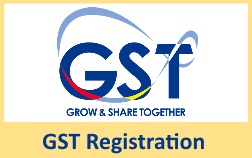Comprehensive Guide to the most effective GST Registration Services in Singapore
Comprehensive Guide to the most effective GST Registration Services in Singapore
Blog Article
From Begin to End Up: The Ultimate Roadmap to GST Enrollment for Services Seeking Financial Stability
Browsing the intricacies of Item and Services Tax (GST) registration is a crucial step for services striving for monetary security. Breaking down the roadmap into manageable steps can enhance the registration journey for services looking to enhance their financial standing.
Comprehending GST Fundamentals
Looking into the basic concepts of Product and Solutions Tax (GST) is necessary for gaining a thorough understanding of its effects on companies and the economic climate. GST is a value-added tax levied on most goods and services for domestic intake. It has actually replaced numerous indirect taxes that existed in the pre-GST era, improving the tax structure and enhancing simplicity of doing service in India. Under the GST system, both solutions and goods are exhausted at a particular price, which is identified based on their classification. Organizations are called for to register for GST if their yearly turn over goes beyond the threshold limitation established by the government. Input Tax Obligation Debt (ITC) is a substantial feature of GST, allowing businesses to declare credit rating for taxes paid on inputs, decreasing the general tax obligation worry. Recognizing the basics of GST is vital for organizations to comply with tax laws, handle their finances efficiently, and add to the nation's economic growth by joining a clear tax system.
Eligibility Criteria for Enrollment
To register for GST, organizations should fulfill specific qualification standards developed by the federal government. The main eligibility need is that any type of service included in the supply of goods or solutions with a yearly aggregate turnover above the threshold limit established by the authorities need to sign up for GST. As of the current laws, the threshold restriction for GST registration is a yearly aggregate turn over of 40 lakhs for businesses running within a state, with the exception of unique category states where the restriction is 20 lakhs. In addition, specific companies are required to sign up for GST regardless of their turnover, such as interstate suppliers, laid-back taxable persons, and companies reliant pay tax under the reverse fee mechanism. It is important for companies to thoroughly examine their turnover and purchase types to determine their GST enrollment commitments precisely. Failure to sign up for GST when eligible can cause penalties and lawful repercussions, making it necessary for companies to stick to the specified qualification requirements.
Records Required for Enrollment
Having met the eligibility standards for GST enrollment, businesses have to currently ensure they have the requisite documents in place to proceed with the registration procedure efficiently. The files needed for GST registration generally consist of proof of service constitution, such as collaboration deed, enrollment certification, or unification certification for various types of organizations. In addition, companies need to provide documents developing the primary area of service, such as a rental contract or power bill.
Step-by-Step Registration Refine
Beginning the GST registration procedure entails a collection of organized actions to make certain a certified and seamless registration for businesses. The very first step is to see the GST website and complete the enrollment form with precise information of business entity. Following this, the candidate gets a Temporary Recommendation Number (TRN) which is utilized to resume the application process if it's not finished in one go.
Next, all required papers according to the checklist provided by the GST portal demand to be posted. These documents commonly include proof of business identification, address and registration evidence of promoters, economic statements, and service entity's PAN card.

Post-Registration Conformity Guidelines

Conclusion
To conclude, organizations looking for financial stability must understand the basics of GST, satisfy qualification requirements, gather essential documents, adhere to the detailed registration process, and comply with post-registration standards - Best GST registration services in Singapore. By adhering to these steps, businesses can ensure conformity with tax regulations and keep economic stability over time
In addition, specific services are required to register for GST regardless of their turn over, such as interstate distributors, laid-back taxable individuals, and organizations accountable to pay tax obligation under the reverse find fee device.Having actually satisfied the eligibility standards for GST enrollment, companies should now guarantee they have the requisite papers in place to proceed with the registration procedure effectively. The records required for GST enrollment typically consist of proof of service constitution, such as partnership act, enrollment certification, or incorporation certificate for different types of services. Additionally, companies require to give documents developing the primary area of organization, such as a rental agreement or electricity expense.Commencing the GST registration procedure entails a series of structured actions to make sure moved here a certified and smooth registration for services.
Report this page